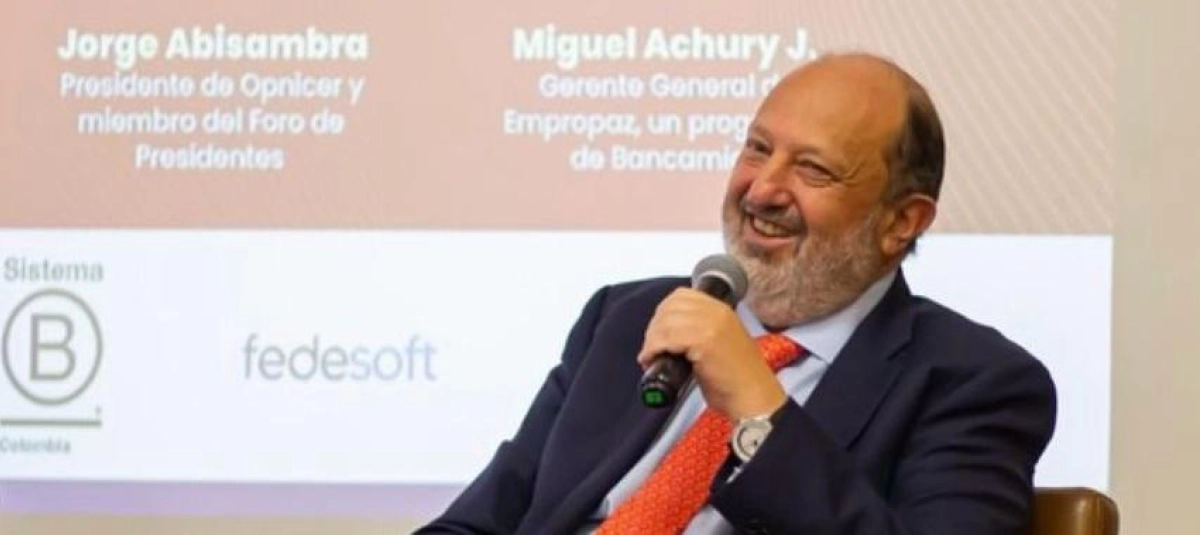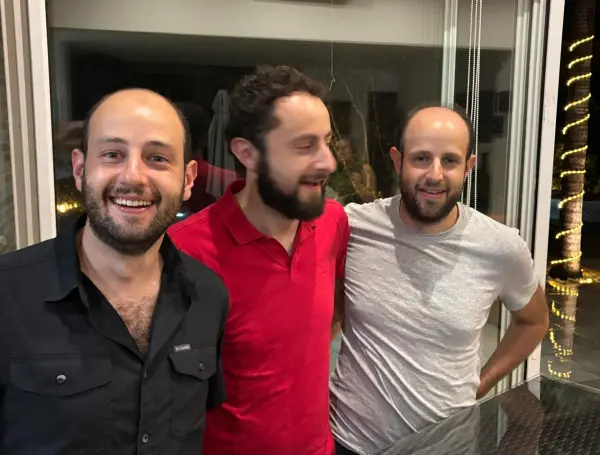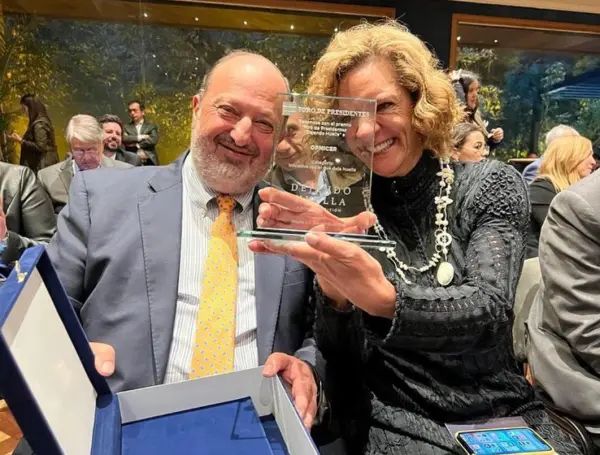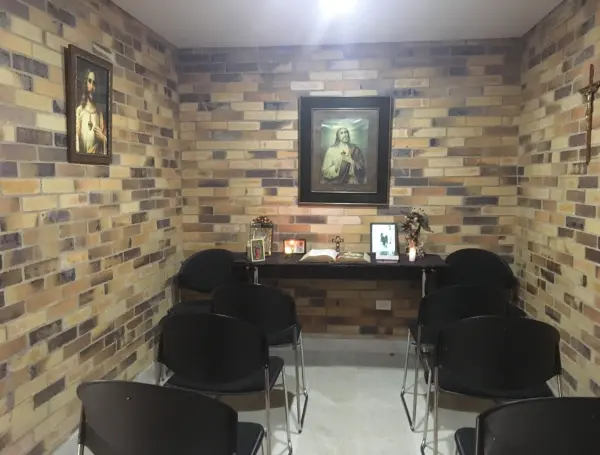
Not all difficult stories have unhappy endings. Some become sources of inspiration or even motivate the creation of social causes. This is the case of Jorge Abisambra, a cancer survivor, father of a patient diagnosed with T-cell acute lymphoblastic leukemia, and founder of the Parents’ Organization for Children with Cancer.
It all began on December 31, 1999. On a date when everyone was preparing to welcome the new year, Abisambra and his family received the news that his son Santiago, then 5 years old, was facing a terminal illness.
“The only symptom he had was low energy and a yellowish complexion. His mother and I thought it was hepatitis,” he recalls. Although it was a long and difficult process, for Jorge and his wife it was important to stay motivated because they also had two other children at home.
As he revealed in an interview with EL TIEMPO, it was a complex situation for his children to understand, as they were at ages when reasoning skills are not yet fully developed.

This is how Santiago and his two brothers look today. Photo: Courtesy
“Even if only one family member suffers from the illness, we all live it and feel its impact—especially on an emotional level. One of my sons felt a lot of pressure from everything we were going through, and we had to change his school,” he recalls. Regarding his other, healthy child, he says there was a constant need to seek his attention: “He didn’t understand what was happening and felt jealous of his sick brother.”
Although the family dynamics were deeply affected, the experience gave them the strength to empathize with others facing similar challenges. That’s why they created OPNICER, a foundation that supports households receiving the devastating diagnosis of cancer.
“We realized that leaning on other people eased the burden,” Jorge explains about the foundation’s beginnings in 2000. “So we sought a sustainable way to help other parents who, like us, needed companionship and support.”
Beyond his work at the foundation and his experience with his son, Jorge Abisambra also had to fight for his own life. Despite showing no warning signs, at age 54 his wife insisted that he undergo a full medical check-up, since it had been a long time since his last one.
“I was diagnosed with cancer in the colon and liver. The shocking part was that all of this was happening inside me without any symptoms. I reluctantly went for that check-up, and it turned out they had to act quickly because my life expectancy was short,” he recalls.
Against all odds, he went into remission. “Now I’m fighting the fat in the little piece of liver I have left. I take care of it like it’s the crown jewel,” he jokes. During treatment, he never stopped working or keeping a positive mindset. “While they were giving me chemo, I handled work matters online,” he says. “For me, going there wasn’t about being in an oncology center—I tried to see it and refer to it as my visit to the spa.”

In 2022, the foundation received the “Leaving a Mark” award from the Presidents’ Forum. Photo: Instagram
Currently, Jorge is 64 years old and his son Santiago is 31. Both are healthy, working individuals who are grateful for the opportunity life has given them. Abisambra is now the Executive Director of an ICT services company, offers consulting, and supports the World Corporation of Women.
What does OPNICER offer to families who have a member with cancer?
The foundation has several goals, but the main ones are providing shelter, food, psychological support, and guidance to families with children who have been diagnosed.
“We have a shelter home where we care not only for the child but also for their caregiver. The child receives meals based on the nutritional guidelines required by their treatment,” he says.
They also support special cases such as bone marrow transplants, palliative care, or iodine therapy treatments. However, their daily work is more focused on meeting the general needs of children.
“We work hand in hand with the National Cancer Institute. There, the doctors make the diagnosis and, together with the entity’s social work department, we create a profile of the child and their family to determine what support they need during their stay in Bogotá.”
One of their most notable programs is the “Sponsor Plan,” which allows interested individuals to make regular contributions for whatever is needed. “In our case, sponsorship is not individual, because if the child dies, that could mean the sponsor stops contributing. So, we focus on collective support,” he explains.
“There are ways to symbolically sponsor a child for those who want to connect with the patient. Inviting them to an activity with their parent or suggesting a recreational plan can be a great way to bond,” he adds.
How can people support OPNICER’s cause?
“Although our website states that the monthly contribution is 100,000 pesos, it can be less. Any contribution is welcome; we even receive piggy banks that donors fill little by little,” Abisambra clarifies.

Having witnessed the power of faith, they created a space for prayer in the shelter. Photo: Opnicer.org
If you are interested in contributing to the work of the OPNICER Foundation, you can visit their physical headquarters located in Bogotá, the capital of the country. If you are outside Colombia, find it difficult to go in person, or live in other cities, you can make donations via bank transfers. To get the details, visit their official website or follow them on social media platforms such as Instagram and Facebook.
MARIANA SIERRA ESCOBAR
ALCANCE DIGITAL TEAM
EL TIEMPO

